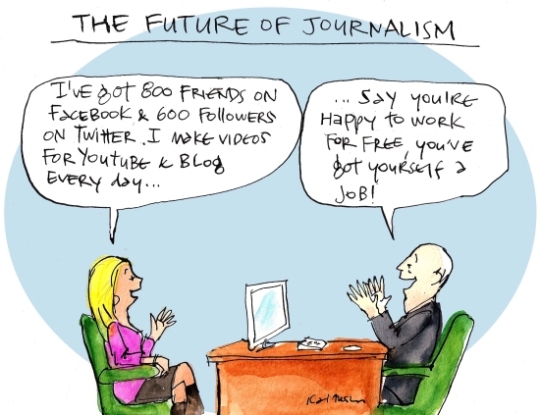The emergence of the Internet is argued by Richard Miller to be the “greatest change in human communication in human history… its communicative powers surpass all the preceding technologies for enabling and enhancing human understanding combined” (2009, 143). Of course, this has created the opportunity for education to be provided in ways like never before. But how should existing universities react to these possibilities?
I think the answer is simple – ’embrace it’! It doesn’t seem like there is another option anyway.
Education should be seen as a right, not a privilege – and definitely not something that can only be achieved by those with the money or the opportunity to attend university in person. The internet means that people can access education anywhere across the globe and this is a good thing.
However, in order to actually make formal education available over the internet it is necessary for universities to make changes to how subjects are taught and assessed. This subject, BCM310, provides good examples of the different ways in which the internet can be used. Lectures are recorded and placed online, tutorials may involve communicating with other students via a forum, and assignments can be conducted and submitted online – for example, this very blog!
An interesting aspect of online education is the creation of ‘MOOC’s (massive open online courses) which provide classes on a variety of topics for free. Students enrol in the class and will usually be required to watch short video lectures then complete assignments which will be graded by their peers (The Chronicle of Higher Education 2013). These courses are becoming increasingly popular and are something which universities will have to address. Why would someone pay to attend uni if they can learn online for free? Some universities, such as Stanford and Harvard, are already beginning to embrace MOOCs and I think this will provide for a very interesting learning environment in the future.
Miller, R (2009) ‘The Coming Apocalypse’ Pedagogy: Critical Approaches to Teaching Literature, Language, Composition and Culture, Vol 2, No 1, p143-150
‘Welcome to the Brave New World of MOOCS (Massive Open Online Courses)’ (2013) The New York Times, viewed 18 April 2013, <http://www.youtube.com/watch?v=KqQNvmQH_YM>
‘What you need to know about MOOCs’ (2013) The Chronicle of Higher Education, viewed 18 April 2013, <http://chronicle.com/article/What-You-Need-to-Know-About/133475/>
